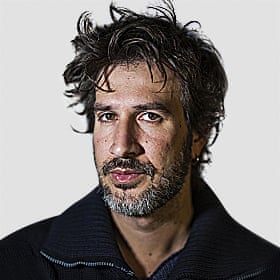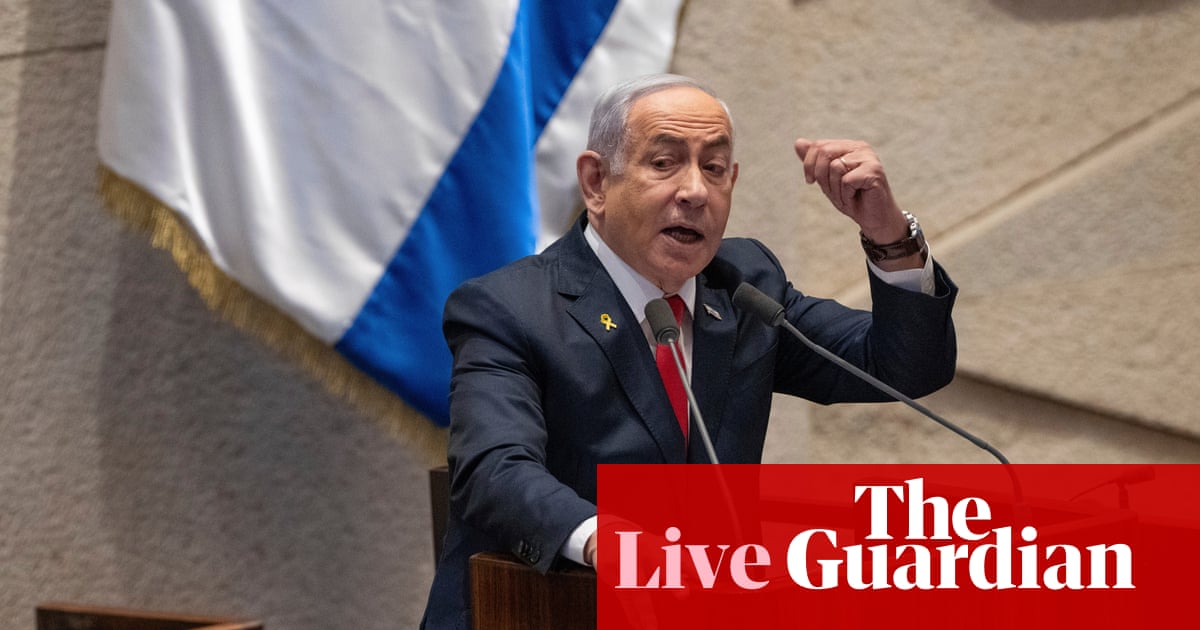Haroon Siddique
Why did ICC issue Netanyahu arrest warrant and what are the implications?
Benjamin Netanyahu has become the first leader of a “western-style” democracy to have an arrest warrant issued in his name by the international criminal court. The court has also issued warrants for his former defence secretary, Yoav Gallant, and the Hamas military leader, Mohammed Deif.
Here the Guardian explains why the warrants have been issued and what they mean in practice.
On what grounds have the warrants been issued?
The warrants relate to the Hamas attack on Israel on 7 October 2023 and the Israeli military response in Gaza.
The ICC’s three-judge panel said it had found reasonable grounds to believe that Netanyahu and Gallant “bear criminal responsibility for … the war crime of starvation as a method of warfare and the crimes against humanity of murder, persecution, and other inhumane acts”.
What are the practical implications for Netanyahu and Gallant?
The ICC relies on 124 member states of the Rome statute, which established the court, to execute arrest warrants. Member states are obliged to arrest individuals wanted by the ICC who set foot on their territory and, while they do not always do so, it means that the accused will have to consider whether they are willing to risk travelling.
How does the ICC have jurisdiction over Israel when it isn’t a member?
The ICC has jurisdiction for both alleged crimes committed by a national of a member country and alleged crimes committed in the territory of a member state. Palestine acceded to the Rome statute in 2015, and the ICC ruled in 2021 that it was a state, thereby extending the court’s jurisdiction to territories occupied by Israel since 1967 – Gaza and the West Bank including East Jerusalem.
Read more by the Guardian’s legal affairs correspondent, Haroon Siddique here.
Key events
The US have said they “fundamentally reject” the International Criminal Court’s arrest warrants for senior Israel officials and said the court does not have jurisdiction over the matter.
On Thursday, arrest warrants were issued by the court for the Israeli prime minister, Benjamin Netanyahu, Israel’s former defence minister Yoav Gallant and the late Hamas military leader Mohammed Deif over alleged war crimes committed in Gaza.
The US, which is not an ICC member, has previously welcomed ICC war crimes warrants against Vladimir Putin and other Russian officials for atrocities committed in Ukraine.
“We remain deeply concerned by the prosecutors rush to seek arrest warrants and the troubling process errors that lead to this decision,” White House press secretary Karine Jean-Pierre said on Thursday, without going into further detail.
Jean-Pierre said the US has been clear the ICC does not have jurisdiction over the matter, and said “whatever this prosecutor might imply” there’s “no evidence” between Israel and Hamas.
The US are currently having conversations with partners, including Israel, she said, regarding next steps.
Pro-Palestinian groups took the Dutch state to court Friday, urging a halt to arms exports to Israel and accusing the government of failing to prevent what they termed a genocide in Gaza.
The NGOs argued that Israel is breaking international law in Gaza and the West Bank, invoking, amongst others, the 1948 United Nations Genocide Convention set up in the wake of the Holocaust.
“Israel is guilty of genocide and apartheid” and “is using Dutch weapons to wage war”, said Wout Albers, a lawyer representing the NGOs.
Israel furiously denies accusations of genocide as it presses the offensive in Gaza it began after the October 7, 2023, Hamas attack on Israel.
Opening the case at the court in The Hague, judge Sonja Hoekstra noted: “It is important to underline that the gravity of the situation in Gaza is not contested by the Dutch State, nor is the status of the West Bank.”
“Today is about finding out what is legally in play and what can be expected of the State, if the state can be expected to do more, or act differently than it is currently acting,” she added.
She acknowledged this was a “sensitive case”, saying: “It’s a whole legal debate.”
More aid workers have been killed this year than in any year since tallies began, the United Nations humanitarian office said on Friday, with most of them killed by Israel in the Gaza conflict.
So far this year there have been 281 aid workers killed, according to the Aid Worker Security database which has recorded incidents dating back to 1997, versus 280 in 2023 which held the previous record.
It showed 178 have been killed in the occupied Palestinian territories including Gaza this year which has been the deadliest conflict for the United Nations. Twenty-five were killed in Sudan, it showed.
“These people are doing God’s work, and they’re being killed in response. What the hell?” said Jens Laerke, spokesperson for the UN Humanitarian Office (OCHA), at a Geneva press briefing.
Most of the victims were local staff, while 13 of them were international aid workers, he added.
Aid workers enjoy protection under international humanitarian law but experts cite few precedents for such cases going to trial, with concerns about ensuring future access for aid groups and difficulty proving intent cited as impediments.
“This violence is unconscionable and devastating to aid operations,” said UN aid chief Tom Fletcher in a statement.
“States and parties to conflict must protect humanitarians, uphold international law, prosecute those responsible, and call time on this era of impunity,” he said.
Two medics have been killed in an Israeli strike targeting a vehicle in southern Lebanese town of Deir Qanoun Ras Al-Ain, the Lebanese health ministry said on Friday.
Julian Borger, the Guardian’s senior international correspondent, spoke with Today in Focus about the significance of Israeli prime minister Benjamin Netanyahu’s arrest warrant – the first time a western ally from a modern democracy has been charged with war crimes and crimes against humanity by a global judicial body.
He tells Hannah Moore how allies such as the US and UK are likely to react to the news, and the impact it has had in Israel.
In practical terms, it is unlikely to affect the prosecution of the war, Julian explains. But could it further damage Israel’s international standing?

Lorenzo Tondo
On Thursday, Italy said it would have to arrest Netanyahu if he came to the country.
Following the warrant issued by the International Criminal Court (ICC), founded on the Rome Statute, in an interview with Rai, Defence Minister Guido Crosetto said his country would be obliged to arrest Netanyahu if he visited.
Although Italy’s government said it believed the ICC was “wrong”, Crosetto said that if Netanyahu and his former defence minister Yoav Gallant “were to come to Italy, we would have to arrest them” under international law.
“By joining the Court, we must apply its judgments, it is part of the treaty,’’ he said.
Every State that joins would be obliged, the only way to not apply it would be to withdraw from the treaty. I may consider this judgment to be wrong. I think it is wrong. They made a judgment that put the Israeli president and (the former) minister of defence on the same level as the one who led and organized the shameful attack that massacred women, men, and children and kidnapped Israelis. And from which the war started. And they are two completely different things: on one hand there is a terrorist act, on the other hand there is a country that, as a result of this act, tries to eradicate a criminal terrorist organization.
The opposition centre-left Democratic Party (Pd) said the government should do what it can for the arrest warrants to be executed.
“The attack on the International Criminal Court over the arrest warrant for Netanyahu has begun,” said PD foreign affairs chief Peppe Provenzano via X.
“Italy has a duty to respect it, but also to comply with its decisions”.
Here are the latest images from Gaza:
Countries are responding to the International Criminal Court (ICC) arrest warrants issued on Thursday for the Israeli prime minister, Benjamin Netanyahu, the country’s former defence minister Yoav Gallant and the Hamas military leader Mohammed Deif for alleged war crimes relating to the Gaza war.
Netanyahu and Gallant are at risk of arrest if they travel to any of the 124 countries that signed the Rome statute establishing the court.
Ireland said it would be prepared to arrest Netanyahu if he came to the country, prime minister Simon Harris said.
“Yes absolutely. We support international courts and we apply their warrants,” Harris told national broadcaster RTE on Friday when asked if Netanyahu would be arrested if he arrived in Ireland for whatever reason.
Germany said it is “examining” how to respond to the International Criminal Court’s decision to issue an arrest warrant for Netanyahu, Germany’s foreign minister Annalena Baerbock said Friday.
Slovenia also said it will respect arrest warrants for Israel and Hamas leaders issued by the ICC and “will fully comply”, prime minister Robert Golob was quoted as saying by Slovenian news agency STA.
As mentioned in the opening summary, Hungarian prime minister, Viktor Orban, has said he will invite his Israeli counterpart Benjamin Netanyahu to visit.

Haroon Siddique
Why did ICC issue Netanyahu arrest warrant and what are the implications?
Benjamin Netanyahu has become the first leader of a “western-style” democracy to have an arrest warrant issued in his name by the international criminal court. The court has also issued warrants for his former defence secretary, Yoav Gallant, and the Hamas military leader, Mohammed Deif.
Here the Guardian explains why the warrants have been issued and what they mean in practice.
On what grounds have the warrants been issued?
The warrants relate to the Hamas attack on Israel on 7 October 2023 and the Israeli military response in Gaza.
The ICC’s three-judge panel said it had found reasonable grounds to believe that Netanyahu and Gallant “bear criminal responsibility for … the war crime of starvation as a method of warfare and the crimes against humanity of murder, persecution, and other inhumane acts”.
What are the practical implications for Netanyahu and Gallant?
The ICC relies on 124 member states of the Rome statute, which established the court, to execute arrest warrants. Member states are obliged to arrest individuals wanted by the ICC who set foot on their territory and, while they do not always do so, it means that the accused will have to consider whether they are willing to risk travelling.
How does the ICC have jurisdiction over Israel when it isn’t a member?
The ICC has jurisdiction for both alleged crimes committed by a national of a member country and alleged crimes committed in the territory of a member state. Palestine acceded to the Rome statute in 2015, and the ICC ruled in 2021 that it was a state, thereby extending the court’s jurisdiction to territories occupied by Israel since 1967 – Gaza and the West Bank including East Jerusalem.
Read more by the Guardian’s legal affairs correspondent, Haroon Siddique here.
Opening Summary
The Hungarian prime minister, Viktor Orban, has said he will invite his Israeli counterpart Benjamin Netanyahu to visit, in defiance of an ICC arrest warrant for Netanyahu’s alleged war crimes relating to the Gaza war.
The Hague-based court on Thursday issued warrants for Netanyahu and former Israeli Defence Minister Yoav Gallant, as well as Hamas military chief Mohammed Deif “for crimes against humanity and war crimes committed from at least 8 October 2023 until at least 20 May 2024”.
It is the first time that leaders of a democracy and western-aligned state have been charged by the court, in the most momentous decision of its 22-year history. Netanyahu and Gallant are at risk of arrest if they travel to any of the 124 countries that signed the Rome statute establishing the court.
In his weekly interview with state radio, Orban called the ICC’s decision, “outrageously brazen” and “cynical”, saying it “intervenes in an ongoing conflict… dressed up as a legal decision, but in fact for political purposes”.
“There is no choice here, we have to defy this decision,” Orban said.
Hungary signed the Rome Statute, the international treaty that created the ICC, in 1999 and ratified it two years later during Orban’s first term in office. However, Budapest has not promulgated the associated convention for reasons of constitutionality and therefore asserts that it is not obliged to comply with ICC decisions.
“Later today, I will invite the Israeli Prime Minister, Mr Netanyahu, to visit Hungary, where I will guarantee him, if he comes, that the judgment of the International Criminal Court will have no effect in Hungary, and that we will not follow its terms,” he added.

